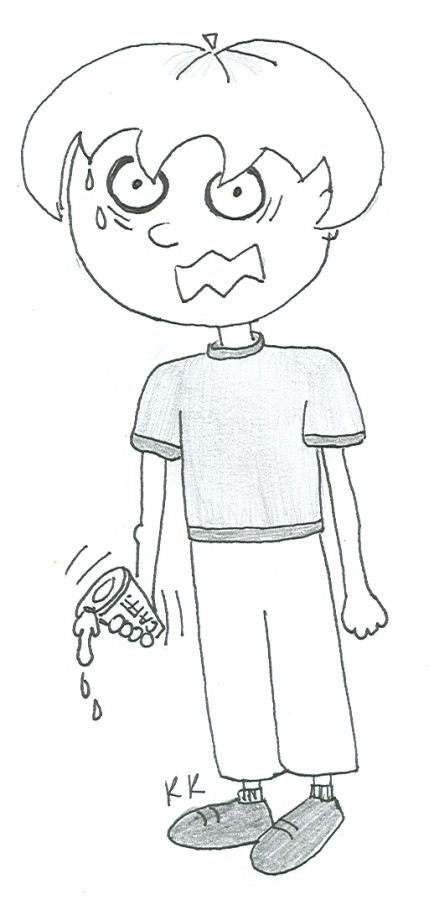Coffee and caffeine are a large part of life in America, with over 50 percent of Americans drinking coffee every day, but starting too young can have harmful effects, especially on children and teenagers. Caffeine overall is simply not worth the temporary buzz drinkers get.
Caffeine itself is considered a drug, and it falls into the stimulant category. A stimulant is a drug that increases alertness, elevates mood and wakefulness, and increases speech and motor activity. Although teens are placed under pressure to study more, do more activities, and be altogether more involved, caffeine is not the solution many teens see it as.
Seniors Evan Yerger and Nick Mastores are regular caffeine drinkers, with Yerger consuming five cups of coffee or tea a day during school on average and Mastores normally drinking four cups of coffee a day. Both teens consume more than 350 milligrams of caffeine a day. That is equivalent to drinking three monsters a day.
“Every once in a while, if I’m off of caffeine abruptly I’ll have headaches or an uneasy feeling,” Yerger said. “You just generally don’t feel like how you usually feel like when you’re on caffeine.”
Withdrawal from those who skip a day of consumption is common, as caffeine does have addictive qualities and, by definition, addiction starts with physical dependence. Withdrawal symptoms can include headache, fatigue, anxiety, irritability, depressed mood, and difficulty concentrating, according to WebMD. While caffeine isn’t illegal, the effects on the body are substantial, and drinkers should seriously consider cutting down or cutting out their caffeine consumption.
With today’s society putting so much pressure on teens to perform well in school and take part in as many extracurricular activities as possible, over 87 percent of teenagers in grades 9-12 reported getting far less than the sufficient amount of sleep (8-9 hours per night), according to the National Sleep Foundation. Caffeine makes teens feel as though they have the energy to keep up with the pressure, but the opposite is actually true. The crash after a caffeine boost can actually make drinkers feel more tired than they were before caffeine, and cause them to drag even further.
Caffeine may seem like a good quick fix for a lack of energy or a way to get that final project done, but when taken consistently, there can be adverse side effects. It actually further disrupts sleep patterns in teens, causing shorter dream periods or less time spent asleep, leaving teens feeling less rested when they wake up in the morning, according to CBS. Caffeine can diminish the quality of the little sleep teens do get, and should not be used to stay awake.
“Late at night I usually won’t be able to sleep,” Yerger said. “But that’s kind of the goal, so I can’t really complain too much about that.”
Some coffee drinkers know how to avoid the late night caffeine-driven insomniatic energy. If drinkers are not careful, their tolerance and dependence will build up and they will start needing more caffeine more often.
“I tend not to drink it in the afternoon or evening,” Joe May, English teacher and daily coffee drinker, said. “I just really enjoy the process of having coffee to start the day every morning.”
Drinkers may know how to handle or diminish the effects, but teens are especially vulnerable to these side effects, as teenagers’ bodies are not fully matured and are therefore more susceptible to outside persuasions. Caffeine has also been shown to stunt growth and disrupt puberty in children and teenagers, according to People’s Pharmacy.
“I don’t have a problem with side effects,” Mastores said. “But I know when I’m 40 it’ll be the exact opposite, so that’s what I’m worried about.
Despite all the reasons to not drink caffeine, it is still very popular, especially tea and coffee. Social drinking is no reason to become caffeine dependent, and drinkers should be wary of becoming reliant on caffeine.
Drinking caffeine has both negative and positive effects, and while many will argue one way or the other, the effects of caffeine can have negative bodily effects, while only giving a short term energy boost. If you wouldn’t put drugs like cocaine and nicotine in your body, why would you drink caffeine?

